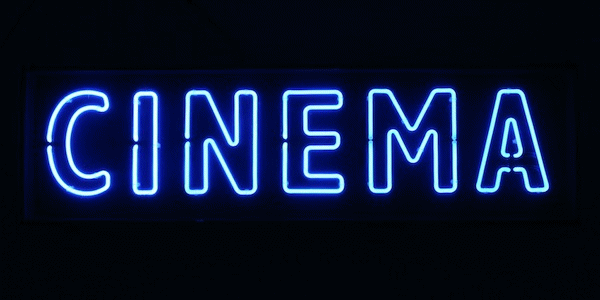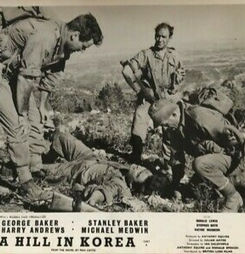top of page


.com

Estd. 2020
Centenary
Project
2027

Approved by the Shaw Family








"I want to be a farmer...I like to watch things grow"

"Robert was much misunderstood. Not only was he a funny man, he was a kind man." - George Roy Hill

trailer
Robert Shaw as Lance Corporal Billy Hodge

During the Korean War retreat in 1951, a small British recon group is surrounded by Chinese troops and holds out in a lonely temple atop a hill.
Directed by Julian Amyes
Screenplay by Anthony Squire, Ronald Spencer and Ian Dalrymple from the novel by Max Catto
Produced by Anthony Squire and Ian Dalrymple
Music by Malcolm Arnold
Cinematography by Freddie Francis
Edited by Peter Hunt
Technical Adviser: Michael Caine
Also starring George Baker, Michael Medwin, Harry Andrews, Stanley Baker, Victor Maddern, Harry Landis, Ronald Lewis and Michael Caine
Released by British Lion Films
Release Date: September 18th 1956
Running Time: 81 minutes
Location(s): Shepperton Studios, Surrey and Portugal






This was the film debut
of Michael Caine.




gallery







the hill top

Official Movie Soundtrack
Joseph Valador Interview
Fighting on Film Podcast
Enjoy the opening and closing music composed by Malcolm Arnold.
Valador talks of his involvement with the production of Hell in Korea, while it was being filmed on location in Portugal. Valador served as an interpreter for the British production crew.
A fascinating look at the making of the film with a scrutiny on the military details and the weapons used during the filming.
Colourised Clip
Rare French Trailer
70th Anniversary Mini Doc
A newly colourised clip from the movie.
Trailer made for French Cinema.
A mini documentary about the movie and the war from 2021.






Press Play




DIRECTOR
Julian Amyes
(1917 - 1992)


George
Baker
(1931 - 2011)


Harry
Andrews
(1911 - 1989)
Stanley
Baker
(1928 - 1976)

Ronald
Lewis
(1928 - 1982)

Victor
Maddern
(1928 - 1993)

Harry
Landis
(1931 - 2022)


Michael
Medwin
(1923 - 2020)
Michael
Caine
(1933 - )



A typical 1950's ensemble cast effort which was very popular at the time. Robert has a small role as Lance Corporal Hodge but this time he gets more interesting scenes, lots of rifle firing and more dialogue before he is killed off after 20 minutes.
It's a solid film with some nice cinematography and a rousing score but as a story it offers nothing new. This film was also the debut of a certain Michael Caine but this film did little to further Robert's career.


Lobby Card Gallery

Hell in Korea (1956, British title: A Hill in Korea) may sound like a composite of a lot of platoon-in-jeopardy war movies from The Lost Patrol [1934] to Pork Chop Hill [1959]. Unlike the latter film, which was also set during the Korean War and depicted embattled U.S. soldiers trying to hold a strategic military position, Hell in Korea has the distinction of being the first U.K. production about the conflict which lasted from 1950-1953 and is interesting for its point of view which combines gung-ho jingoism with the grim realities of war.
Often referred to as the “Forgotten War,” the Korea conflict, which started in June 1950 and ended in July 1953, marked the early beginnings of the Cold War between the U.S. (and its United Nation allies) and the combined forces of North Korea, the Soviet Union and China, who invaded South Korea in an attempt to unify the Korean Peninsula. According to CNN, “The toll of the war included about 1.2 million deaths in South Korea, 1 million deaths in North Korea, 36,500 deaths for U.S. troops and 600,000 deaths for Chinese soldiers.”
While Hell in Korea is a B-movie programmer in most respects, it is worth a look just to see the roster of up-and-coming British actors who would all have major careers within a decade or less. Although the real star of the picture, George Baker, is less well know to American audiences, he has enjoyed a long and successful career in British television and film, appearing in such series as Bowler, I, Claudius and Doctor Who and films like The Dam Busters [1955], On Her Majesty’s Secret Service [1969] and Goodbye, Mr. Chips [1969].
More interesting to U.S. viewers is the supporting cast that includes Stanley Baker as the volatile, hate-spewing Col. Ryker, Ronald Lewis, a veteran of several Hammer films, as a despised, weak-willed private, prolific British character actor Harry Andrews as Sgt. Payne, and in smaller roles, Robert Shaw, Stephen Boyd and Michael Caine, who only has a few lines of dialogue but still makes a memorable impression.
Caine had actually served in Korea and that was one of the reasons he was hired for Hell in Korea –not just for a supporting role (his first substantial screen credit) but as technical advisor on the film. According to his autobiography, however, his expertise was for naught: “My function as a technical adviser was completely ignored during the making of the film. For example, I advised the crew to spread the troops wide as the latter advanced, which was militarily correct, but they replied that they didn’t have a lens of sufficient width to take it all in! I also pointed out that the officer would have removed his signs of rank and worn a hat, the same as the other men, to disguise which one was in command, but George [Baker] was allowed to go into battle with all badges and hat gleaming, every inch an officer. In a real fight, he would never have lasted all of ten seconds. The most glaring mistake that I never brought to their notice was that Portugal [where parts of it were filmed] did not in the least resemble Korea; if anything, Wales was more similar. I did not say anything because I wanted to stay in Portugal – I could go to Wales at any old time.”
After the Portugal location shooting, the production, which was directed by Julian Amyes, returned to Shepperton Studios to film the remaining scenes. According to Caine, the company Wessex Film Productions held on to the film for a year before releasing it and then had the bad luck to premiere Hell in Korea on the night British and French forces invaded Egypt in a conflict with Israel over the Suez Canal. Most moviegoers had little interest in seeing a war movie at the time and it was quickly forgotten.
Caine was upset at first because he realised hardly anyone would see him in his first credited screen role. When he finally saw the film, he admitted, “I was terrible! My voice was awful…My eyelashes are blond and so are my eyebrows, which has the effect in close-up of something speaking that hasn’t got a face, and it’s not much better in medium shot..My appearances were mercifully few, the editor having decided that the cutting-room floor was the ideal place for my first effort at international stardom.”
Despite Caine’s severe criticism of his work in Hell in Korea, he is perfectly acceptable in his small role. His agent at the time, Jimmy Fraser, however, agreed with Caine’s critique and dropped him from his roster. Director Amyes thought Caine had talent though and cast him in his next television production, Jean Anouilh’s The Lark, a 1956 episode of the BBC Sunday-Night Theatre TV series.
If anything, Hell in Korea is more notable for its contributions from composer Malcolm Arnold, who won an Oscar for his score for The Bridge on the River Kwai (1957), and cinematographer Freddie Francis, who graduated from camera operation to director of photography on this modest but impressive black and white B-movie. He would go on to score two Oscar nominations for Best Cinematography on Sons and Lovers (1960) and Glory (1989).
bottom of page











































































